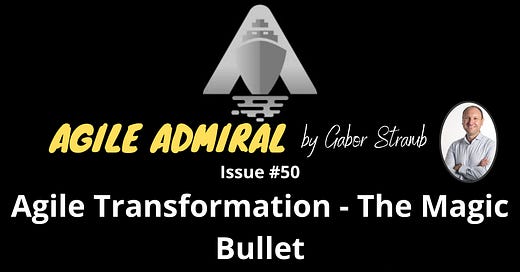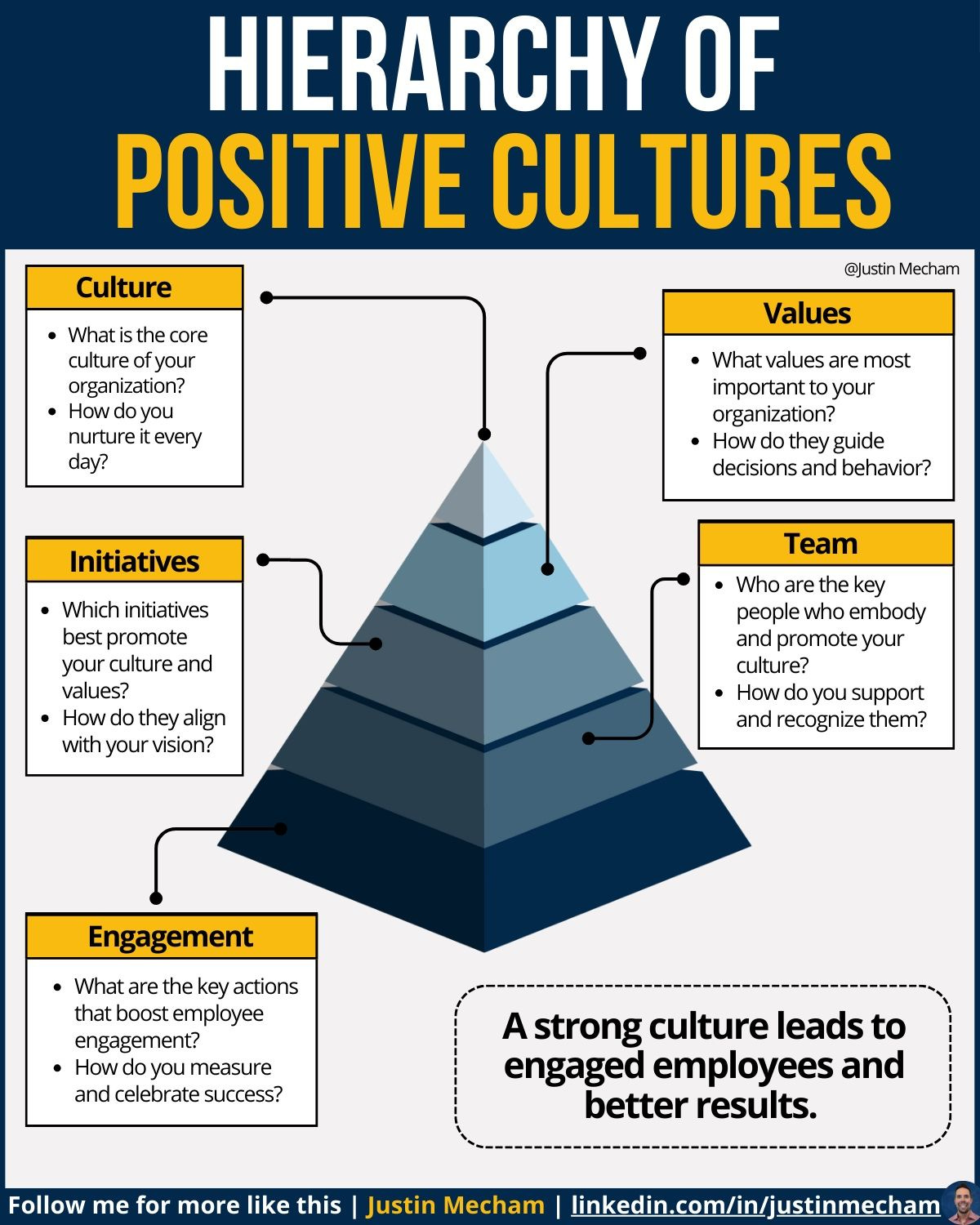Read on LinkedIn / Read time: 5 minutes
Welcome to The Agie Admiral weekly newsletter where I provide actionable ideas to help you build a high-performing Project Management career
In This Issue:
📣 Announcement - PMP Operating System - Launch on June 17th
📚 Learning - Agile Transformation - The magic bullet
👔 Leadership - Hierarchy of positive company cultures
💼 PMO - Not Knowing Areas of the Business
💫 Community - Weekly CAPM & PMP Study Group Schedule
☝️ PMP Operating System
What will you learn inside?
Learn How To Pass PMP Exam from filling Application, defining the 8 weeks study plan, Exam Strategy and Understand PMI Mindset. And score 80-90% passing rate before the exam.
Key pillars:
01 Getting started
02 Filling application. How to translate my experience to PMI way?
03 Creating Your Study Plan
04 What is the PMI mindset
05 How to reach 80% passing rate before the exam


Agile Transformation - The magic bullet
Agile is still the magic bullet for organization problems.
Here is how you get started.
Key Aspects of Agile Transformation:
1. Cultural Shift:
☝️ Mindset Change: Moving from a fixed, hierarchical mindset to one that values flexibility, collaboration, and continuous improvement.
✍️ Empowerment: Encouraging teams to be self-organizing and autonomous, fostering a culture of trust and empowerment.
2. Process Change:
☝️ Adoption of Agile Frameworks: Implementing frameworks such as Scrum, Kanban, or Lean to manage projects and workflows.
✍️ Iterative Development: Emphasizing short, iterative cycles of development (sprints) with frequent reassessment and adaptation.
3. Organizational Structure:
☝️ Cross-Functional Teams: Forming teams with diverse skill sets that can handle all aspects of development from start to finish.
✍️ Flat Hierarchies: Reducing hierarchical barriers to encourage open communication and faster decision-making.
4. Customer Focus:
☝️ Regular Feedback: Involving customers and stakeholders regularly to provide feedback and ensure the product meets their needs.
✍️ Value Delivery: Prioritizing work that delivers the most value to customers early and continuously.
5. Continuous Improvement:
☝️ Retrospectives: Regularly holding retrospectives to reflect on what went well and what could be improved, fostering a culture of continuous improvement.
✍️ Adaptation: Being willing to change processes and practices based on feedback and lessons learned.
Your actions shape your company's culture
70% of employees believe that company
culture is shaped primarily by
the actions and behaviors
of company leaders.
(Gallup)
When you:
➟ Seek feedback
➟ Highlight successes
➟ Offer flexible working hours
➟ Organize team-building activities
➟ Acknowledge employees’ hard work
➟ Provide training and learning opportunities
You'll inevitably create a positive culture.
A positive culture with core values
shaped by actions and not
just words.
A positive culture that will make your team:
➟ Be healthier
➟ Be more creative
➟ Be more engaged
➟ Be more collaborative
Your leadership sets the tone.
Continue reading here: Post
PMO Mistake 4 (of 15): Not Knowing Areas of the Business
One common mistake that Project / Program Management Offices (PMOs) and PMO leaders make is not knowing all the areas of the business.
In other words, they may have little knowledge of the goals and challenges that the Marketing or Finance departments face. 😔
With an Enterprise PMO, it may be easy to realize why it’s important to understand the whole business.
How can the EPMO provide value for the whole organization and be a key contributor with strategic planning if it does not understand how all the needs of each department interconnect?
This vast knowledge and awareness is critical in many areas including:
🔹Project dependencies and prioritization
🔹Risk / issue / opportunity management
🔹Resource management
🔹Change management
🔹Training needs
While it may be easy to see why EPMOs need to know all the areas of the business, what about departmental PMOs?
The same can be said about them as well!
💻 Take an IT PMO for instance.
Not only does the IT PMO team and leader need to understand the needs of the IT department, but knowledge of other departments is critical as well.
This is because projects that are sponsored by IT affect other areas of the business and may even include project team members from other departments.
If there are issues stemming from projects that arise, do a root cause analysis and it’s likely that they boil down from a lack of awareness of critical business areas. ✅
Continue reading here: Post
Weekly CAPM & PMP Study Group Schedule
Date: THUR, June 20
Topic: Hybrid Project Management Part 2 - we did not finished topic last week :-)
Host: Gabor
Link to session: https://www.linkedin.com/events/pmp-weeklystudygroup-topic-tbd7199701363382005760/










